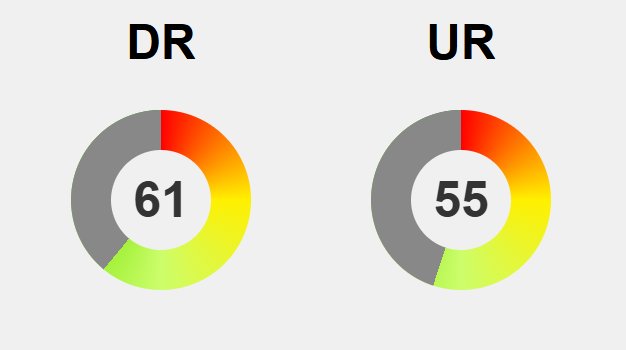Despite Kazakhstan’s promises of reform, systemic human rights violations remain deeply entrenched, raising the question: can genuine change ever take hold? The report reveals a disturbing persistence of torture, arbitrary detention, and political repression, all sustained by a government committed to maintaining its grip on power through censorship, legal ambiguity, and brutal suppression of dissent. Independent media and civil society face relentless restrictions, while vulnerable groups—LGBTQI+, persons with disabilities, and minorities—continue to suffer violence and discrimination. The core barriers—corruption, impunity, societal conservatism, and concentrated authority—appear to solidify, making superficial reforms unlikely to produce meaningful progress. Yet, is there hope for transformation? Change demands relentless pressure from within and sustained international engagement to dismantle these deeply rooted structures. Will Kazakhstan’s leaders genuinely embrace reform, or will repression continue to overshadow the possibility of a more open, just society? The future hinges on breaking this cycle of systemic abuse.
Unmasking Kazakhstan’s Persistent Human Rights Violations
Despite official promises of reform, Kazakhstan’s human rights situation remains deeply troubling. Reports of abuses continue to surface across multiple sectors, revealing a persistent pattern of systemic violations that have yet to be addressed. Torture and ill-treatment in detention facilities are alarmingly common, often carried out by security personnel during pretrial interrogations and imprisonment. Victims describe brutal beatings, stress positions, and other forms of physical abuse aimed at extracting confessions—practices that remain widespread despite being legally banned. The true scale of these abuses is likely much higher than official figures suggest, as victims often fear retaliation or lack access to channels for reporting.
Political repression is woven into the fabric of Kazakhstan’s governance. Opponents, activists, and independent journalists face ongoing harassment, arbitrary detention, and imprisonment on questionable charges. Authorities frequently target critics under broad laws related to extremism or public order, using the justice system as a tool to silence dissent. Several opposition figures have received lengthy sentences, serving as tangible warnings to others contemplating activism or opposition. This environment effectively stifles political pluralism and keeps genuine competition out of reach, ensuring power remains concentrated within a small elite.
Media freedom continues to be under siege. Independent outlets operate in an environment of constant pressure—through legal threats, vandalism, cyberattacks, and restrictive legislation. Journalists reporting on corruption, human rights abuses, or government misconduct often find themselves targeted, with offices vandalized or websites hacked. Laws requiring registration of online content and limiting access to platforms with large audiences create a chilling effect, discouraging critical reporting. As a result, the public’s access to diverse viewpoints remains severely restricted, further entrenching state control over information.
Civil society faces significant hurdles to functioning freely. NGOs working on sensitive issues like minority rights, political reform, or human rights struggle with registration delays, intrusive oversight, and restrictions on foreign funding. Many are labeled “undesirable,” and bureaucratic obstacles are used to disband or weaken their efforts. This shrinking space hampers efforts to monitor abuses, advocate for reforms, and hold authorities accountable. When civil society is silenced or discredited, opportunities to expose systemic violations diminish, allowing repression to continue unchecked.
Discrimination and violence against vulnerable groups persist despite some legal protections. LGBTQI+ individuals experience social exclusion, harassment, and violence, while transgender people face legal and societal barriers that put their safety at risk. Persons with disabilities encounter obstacles in employment, education, and public access, further marginalizing them. These ongoing social injustices deepen divisions within society and undermine efforts to foster social cohesion. Without meaningful societal change and legal enforcement, these issues remain a significant obstacle to broader reform.
The cycle of repression underpins Kazakhstan’s fragile human rights landscape. Instead of dismantling systemic barriers like censorship, impunity, and control over civil society, the regime relies on repression to maintain its grip on power. Superficial reforms are unlikely to produce real change unless they address the core issues of legal loopholes, unchecked corruption, and societal attitudes. Without a concerted effort from within and sustained international pressure, these systemic violations will persist, leaving Kazakhstan’s human rights record bleak and its prospects for reform uncertain.
Systemic Violations Continue Despite Promises of Reform
Despite Kazakhstan’s official claims of progress, systemic human rights violations continue to plague the country across multiple sectors. Reports of torture and ill-treatment in detention centers remain alarmingly frequent, often carried out by security personnel under the pretext of maintaining order. Victims describe brutal beatings, stress positions, and other forms of physical abuse aimed at extracting confessions, especially in the aftermath of the January 2022 unrest. These practices persist despite clear legal prohibitions, exposing a stark disconnect between law and reality. Impunity for security officials only fuels this cycle, making torture an accepted tool of repression rather than a condemned violation.
Political repression remains deeply embedded in Kazakhstan’s governance. Opponents, activists, and independent journalists face ongoing harassment, arbitrary detention, and imprisonment on dubious charges. Authorities frequently utilize broad laws related to extremism or public order to silence dissent, wielding the justice system as a weapon against critics. Several opposition figures have been handed lengthy sentences, serving as stark warnings to others considering activism or opposition. This environment effectively suppresses political pluralism, ensuring that real competition remains out of reach and power stays concentrated among a small elite.
Media freedom is under relentless pressure. Independent outlets operate in an environment of constant threats—legal intimidation, vandalism, and cyberattacks are common tactics used to silence critical voices. Journalists investigating corruption or human rights abuses frequently become targets, with offices vandalized or websites hacked. Laws requiring registration of online content and limiting access to platforms with large audiences create a chilling effect on free expression. As a result, the public’s access to diverse viewpoints remains severely restricted, further entrenching government control over information and public discourse.
Civil society organizations face serious hurdles to functioning freely. Many NGOs working on sensitive issues like minority rights, political reform, or human rights encounter delays in registration, intrusive oversight, and restrictions on foreign funding. Authorities often label NGOs as “undesirable,” deploying bureaucratic hurdles to disband or weaken their activities. This shrinking space hampers efforts to monitor abuses, advocate reforms, and hold officials accountable. When civil society is silenced or discredited, opportunities to expose systemic violations diminish, allowing repression to persist largely unchecked.
Discrimination and violence against vulnerable groups continue unabated despite some legal protections. LGBTQI+ individuals face social exclusion, harassment, and violence, with transgender people especially at risk due to restrictive identification laws and societal stigma. Persons with disabilities encounter barriers in employment, education, and public access, further marginalizing them. These ongoing social injustices deepen divisions within society and undermine efforts to foster social cohesion, making reforms difficult to sustain without broader societal change.
The repression that underpins Kazakhstan’s human rights landscape prevents meaningful progress. Instead of dismantling systemic barriers like censorship, impunity, and control over civil society, the regime relies on repression to maintain power. Superficial reforms, without addressing core issues such as legal loopholes and societal attitudes, are unlikely to produce real change. Without a concerted effort from within the country and sustained international pressure, these systemic violations will continue, leaving Kazakhstan’s human rights record bleak and its reform prospects dim.
Barriers That Block Kazakhstan’s Democratic Progress
Kazakhstan’s path toward democratic reform is blocked by deeply embedded barriers that go beyond surface-level changes. The regime’s reliance on repression and tight control creates a climate where genuine political progress remains virtually impossible. Harsh detention practices, restrictions on opposition parties, and strict media censorship form a comprehensive system designed to silence dissent and preserve the existing power structure. These tactics are interconnected, reinforcing each other to maintain the status quo and prevent any meaningful challenge to the ruling elite.
Legal frameworks often serve as tools of suppression rather than pathways to reform. Vague laws governing public assembly, media regulation, and opposition activity give authorities broad discretion to disqualify candidates, shut down critical outlets, or arrest activists under dubious charges. This legal ambiguity allows the regime to justify crackdowns under the guise of maintaining stability, effectively silencing opposition before it can gain momentum. Such strategies keep the political landscape tightly controlled, leaving little room for genuine competition or pluralism.
Power remains concentrated within a small circle that benefits from this system. The president’s extensive authority enables him to appoint key officials, influence the judiciary, and shape the media narrative. This centralization makes it difficult for political pluralism to develop, even when superficial reforms like cosmetic elections or limited civil society initiatives are introduced. Without dismantling these entrenched networks of influence, any appearance of progress risks being superficial—merely window dressing aimed at appeasing international observers.
Societal attitudes also play a significant role in resisting reform. A legacy of social conservatism, combined with widespread fear of retribution, discourages many citizens from demanding change. This inertia helps reinforce the regime’s narrative that stability depends on control. Overcoming these deeply rooted attitudes requires more than policy shifts; it calls for a cultural shift that values political openness and social inclusion, which many are hesitant or unable to pursue in a climate of repression.
The machinery of repression is further bolstered by systemic corruption and impunity. Officials at various levels often misuse their positions for personal gain, shielded by a lack of accountability. This environment of corruption protects those involved in abuses—whether tampering with elections, silencing critics, or engaging in illicit dealings. As long as impunity persists, efforts at reform will falter because the very institutions meant to uphold the rule of law are compromised from within.
External pressure and diplomatic engagement have limited success in breaking these barriers. The regime’s tight control over civil society and the media restricts outside influence, allowing systemic repression to persist. While international reports highlight ongoing abuses, meaningful action to address core issues such as legal loopholes, corruption, and societal attitudes remains scarce. Without sustained, targeted efforts, genuine democratic progress in Kazakhstan will remain out of reach.
In essence, the barriers to reform are not just legal or institutional—they are cultural and systemic. Overcoming them demands a comprehensive approach that challenges the core structures of power, addresses societal fears, and promotes accountability. Without this, superficial reforms will continue to mask deeper problems, leaving Kazakhstan’s democratic prospects uncertain and its human rights record unchanged.
For those interested in understanding the ongoing challenges and the prospects for change in Kazakhstan, exploring detailed analyses can provide valuable insights. One helpful resource is this comprehensive overview of the political landscape, which offers context and perspectives on the country’s struggle for democracy: Kazakhstan’s Democratic Progress.
The Real-World Impact of Ongoing Repression and Future Challenges
The ongoing human rights violations in Kazakhstan have far-reaching consequences that threaten the country’s social fabric and future stability. When activists and marginalized communities operate under constant repression, a climate of fear takes hold, discouraging civic participation and open debate. This atmosphere erodes trust in government institutions and hampers efforts to build a transparent, inclusive society. Without space for dissent, societal divisions deepen, heightening the risk of unrest or further instability down the line.
Civil society and human rights defenders are bearing the brunt of this repression. Surveillance, intimidation, and legal threats are common tactics used by authorities to silence critics. As a result, many activists and NGOs are forced to operate covertly or scale back their work, limiting their ability to document abuses and advocate for reforms effectively. When those fighting for change are silenced, the cycle of repression intensifies, making genuine progress increasingly elusive.
Vulnerable groups suffer the most. Ethnic minorities, persons with disabilities, and LGBTQI+ individuals often find themselves excluded from social and economic opportunities. Discrimination, harassment, and violence remain widespread, with little accountability from authorities. These persistent social divisions undermine efforts to foster unity and social cohesion, leaving large segments of society feeling ignored and unsafe. Without meaningful protections and societal shifts, these issues will continue to obstruct broader reform.
The culture of impunity fuels the cycle of abuse. When security forces and officials believe they can act without consequences, violations like torture and illegal detention persist unchallenged. This environment of unchecked power discourages victims from speaking out and signals that abuse is tolerated or even protected by the state. Such a climate undermines trust in the rule of law and hampers reform efforts from within.
International responses have had limited impact so far. Diplomatic pressure and human rights reports highlight ongoing abuses, but Kazakhstan’s tight control over civil society and media restricts meaningful outside influence. Without targeted, sustained engagement that addresses core systemic issues—such as impunity, legal loopholes, and societal attitudes—significant change remains unlikely. External efforts must be more strategic and persistent to create real pressure for reform.
Looking ahead, breaking this cycle of repression will require bold steps from within the country and continued support from the international community. Addressing the root causes—such as entrenched power structures, corruption, and social conservatism—is essential for progress. Building independent institutions, reforming legal frameworks, and fostering a culture of accountability can gradually open space for genuine reform to take hold.
Change will be slow and challenging, but history shows that persistent efforts can erode even the most deeply rooted barriers. Strategic diplomatic pressure combined with domestic resilience offers the best chance to shift Kazakhstan toward a more open, just future. Without such concerted action, systemic violations will persist, leaving the country’s human rights record fragile and its prospects for reform uncertain.
Can Kazakhstan Achieve Systemic Change? Challenges and Pathways Forward
Despite the formidable obstacles, the possibility of meaningful reform in Kazakhstan remains within reach. The deep-rooted system of repression and systemic violations is complex, but not entirely unchangeable. Achieving genuine progress hinges on sustained pressure from both inside the country and the global community. Building an independent civil society, reforming legal protections, and fostering political pluralism are essential steps that can create the foundation for lasting change. Without these efforts, superficial gestures risk becoming window dressing, leaving core issues unaddressed.
The primary challenge is the entrenched power of the ruling elite, which relies on censorship, repression, and control to maintain its dominance. Dismantling these structures demands more than cosmetic reforms; it requires a fundamental overhaul of the legal and institutional frameworks that sustain repression. International actors can support this process through targeted diplomatic engagement and incentives designed to promote human rights and accountability. Domestic reformers and civil society must also push for change from within, often at great personal risk, to break the cycle of impunity.
Addressing the deep-seated culture of impunity is crucial. When security forces and officials believe they can act without consequences, abuses become systemic. Strengthening legal accountability and demonstrating that violations will lead to punishment can create space for reform. International monitoring, coupled with grassroots activism, can reinforce this shift, making it clear that violations are no longer tolerated. Small steps toward justice and protections for victims can build momentum for more profound transformations.
Changing societal attitudes is equally vital. Widespread fear, social conservatism, and complacency reinforce the status quo. Shifting public opinion and fostering a culture that values human rights and political openness take time, but they are necessary for sustainable reform. Education campaigns, grassroots movements, and improved access to independent information can gradually reshape norms, making reforms more resilient and harder to reverse.
Ultimately, progress depends on breaking the cycle of repression that currently defines Kazakhstan’s political landscape. This involves tackling the core structures of power, addressing societal fears, and promoting accountability. External support can accelerate this process, but the primary driver must come from within—by courageous leaders, engaged citizens, and persistent activism. Change is slow and often nonlinear, but history shows that resilience and strategic action can gradually erode even the most deeply embedded barriers.
Without a decisive shift, systemic violations will persist, and Kazakhstan’s future remains fragile. However, with unwavering effort, patience, and strategic diplomacy, the country can move toward a more open, just, and democratic society. Deep reforms are possible, but only if they address the root causes—legal loopholes, systemic corruption, and societal attitudes. Progress will require a collective will to challenge the status quo and a commitment to building a future rooted in respect for human rights and the rule of law.








